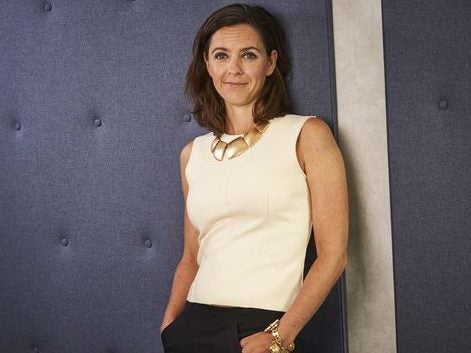
Channel 4 has revealed a mean gender pay gap of 28.6 per cent, more than three times the pay gap between men and women at rival broadcaster the BBC.
Although Channel 4 employs more women than men (59 per cent to 41 per cent), the gender pay gap is increased as there are more men in higher-paid roles.
The public service broadcaster also reported a mean bonus gap of 47.6 per cent, favouring men.
Alex Mahon, Channel 4’s first female chief executive, admitted the pay gap figures made for “uncomfortable reading” and revealed plans to target a 50:50 gender balance in the top 100 earners at the company by 2023.
Currently, men make up 66 per cent of this group.
The broadcaster also admitted it was unlikely to ever reach a gender pay gap of zero in its gender pay report released today.
Mahon said: “There is no quick fix, but identifying the complex and multiple reasons behind our gap is the first step towards tackling the fundamental issues at play.
“While we employ significantly more women than men there is an imbalance in the ratios at the higher and lower-earning parts of the business. We have more men in higher-paid roles, and more women in lower-paid roles.
“It would be perverse for us to reduce the number of women in lower-paid roles and we want to continue to be an attractive place for women to work.
“Instead, we must reduce the gap by focusing on increasing the proportion of women in higher-paid roles.”
The median gender pay gap at Channel 4 is 24.2 per cent with a 28.6 median bonus gap.
A review of around 300 employees’ pay by external counsel, commissioned by Channel 4, found no evidence of a systematic equal pay problem at the broadcaster.
Mahon said the company is nonetheless not “complacent” over equal pay and that it will introduce a number of steps to ensure an approach to pay that is “always as fair and transparent as possible”.
In the gender pay report Channel 4 said it employs a higher proportion of women (59 per cent) than other UK public service broadcasters.
ITV’s make-up is 52 per cent women, Channel 5 owner Viacom is 51 per cent women, the BBC is 47 per cent female and Sky is 42 per cent, according to the report.
Channel 4’s owner ITN, which also owns ITV News and Channel 5 News, last week revealed a mean gender pay gap of 19.6 per cent, which its female journalists described as “disappointing”.
ITN similarly attributed its pay gap to the fact it has fewer women than men in senior leadership roles.
A report into gender pay imbalance at rival public service broadcaster the BBC, published in October 2017, found that women earn 9.3 per cent less than men on average but found “no systemic discrimination” against female staff.
Although slightly more women than men received bonuses at Channel 4 – 88.4 per cent compared to 87.9 per cent received bonuses in 2017 – there are more men in senior positions with higher bonus rates.
The bonus gap is further increased by the fact that 22.7 per cent of Channel 4’s female employees work on a part-time basis.
Channel 4 said it aims to boost career progression for women at senior levels by supporting more than 200 women over the next few years with a Women’s Development Programme and undertaking independent research among female staff to understand and assess their views about their workplace.
It will also review pay practices, “harmonise” job titles, and undertake a review of its recruitment and selection practices.
The report said: “We are fully committed to increasing the representation of women in our upper quartiles through targeted actions. This will help to reduce our gender pay gap significantly.
“However, we are unlikely to ever reduce the gender pay gap to zero. This is because to reduce the gender pay gap to zero we would need to achieve gender parity in our lower two quartiles, which are currently predominantly female (65 per cent).
“This is not a stated aim as, if it were, it would result in actions that would go against the spirit of the gender pay gap legislation, which was designed to help women achieve greater equality of opportunity in the workplace.”
Picture: Channel 4
Email pged@pressgazette.co.uk to point out mistakes, provide story tips or send in a letter for publication on our "Letters Page" blog
